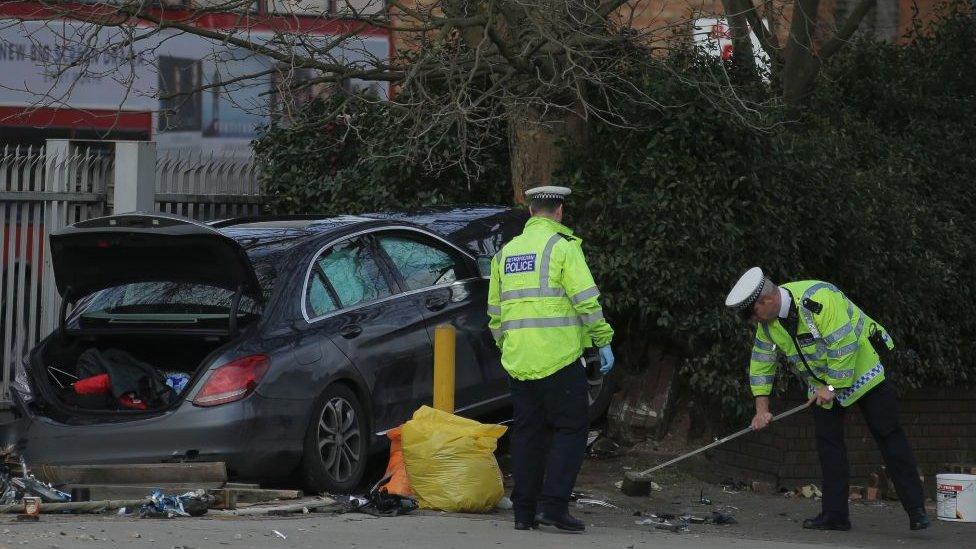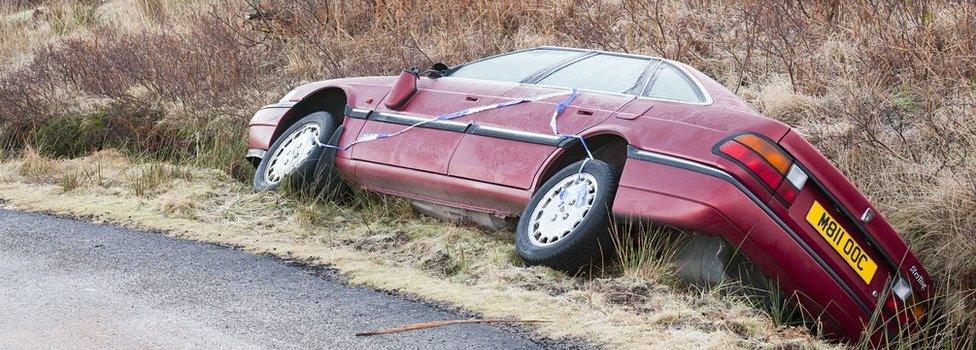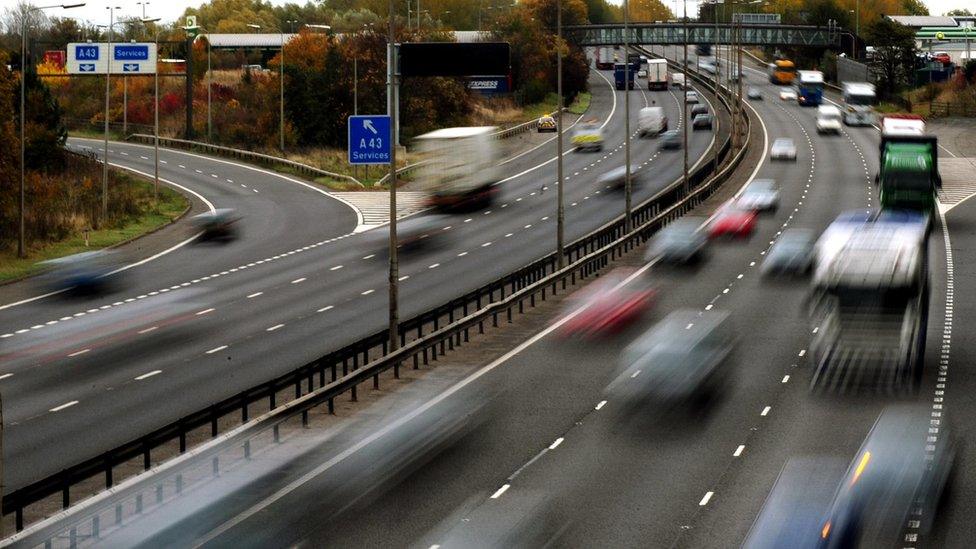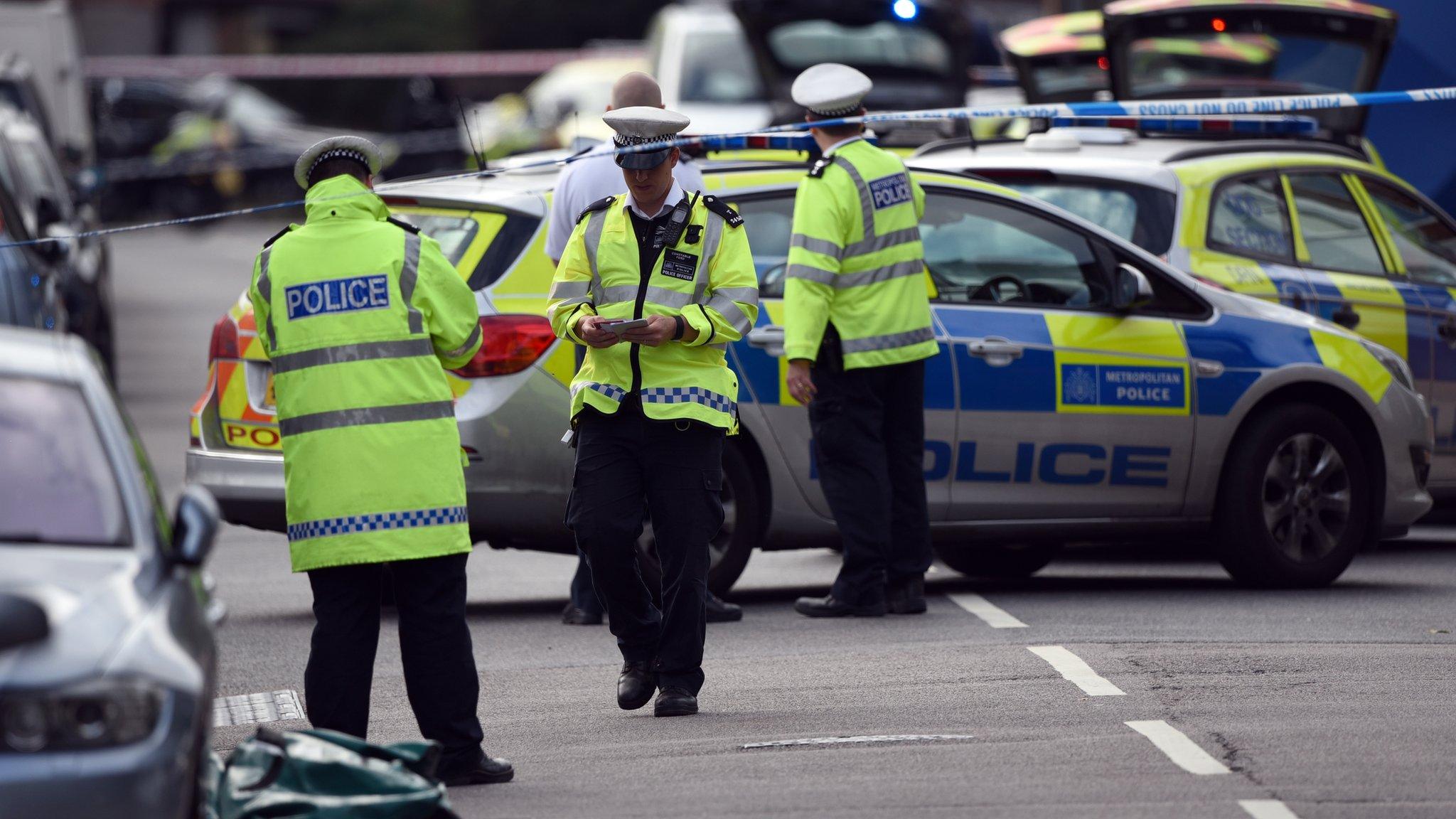Car insurance premiums in record rise, says ABI
- Published

Motorists are being saddled with the fastest year-on-year rise in insurance premiums since records began five years ago, the industry has warned.
Average car insurance premiums have gone up by 11% in the past year, according to the Association of British Insurers (ABI).
The typical bill for an annual policy is now £484, it said.
Earlier this month, the ABI said car insurance premiums had already hit a record high in 2016.
The news will put further pressure on the government to change its decision to reduce the so-called discount rate in March this year.
The effect of that was to increase pay-outs to accident victims, but also to raise premiums.
The ABI says the change in the discount rate is the main reason behind the rise, but also blames the latest increase in insurance premium tax which went up from 10% to 12% on 1 June.
But personal injury lawyers have hit back - saying the insurance industry has been quietly reaping profits, while failing to pay proper compensation to those seriously injured in accidents.
'Scandalous'
The ABI is calling on the government to introduce a new system for calculating compensation payments. The Ministry of Justice has already consulted on a replacement system, but has not yet announced its decision.
"This dramatic increase drives home how important it is the government press ahead with a new framework for the discount rate and call a stop to further hikes in insurance premium tax," said Huw Evans, director general of the ABI.
"Most younger and older drivers are likely to face increases even higher than this, hurting people who can least afford it," he said.
But personal injury lawyers have accused the industry of under-paying accident victims before the rules were changed.
"During this time insurers quietly reaped the financial benefits of not having to pay what they owe to people with life-long, life-changing injuries," said Brett Dixon, president of the Association of Personal Injury Lawyers.
"Yet the insurance industry has been vociferous in blaming the correction for rising motor premiums. It is scandalous that the blame for the mismanagement of the discount rate is being put at the door of seriously injured people."

What is the discount rate?

Think of the discount rate as a rebate for insurance companies who pay out lump sums to accident victims.
In theory those awarded such sums can earn extra money by investing the money they are given, so insurance firms need to pay out slightly less to make up for that.
Up until March this year the awards were reduced - or discounted - by 2.5%, the amount that victims could earn in interest on government bonds.
But such interest rates - or bond yields - have fallen. In fact once inflation is taken into account, they are now negative - meaning accident victims will actually be losing money in real terms over the long term.
That is why the government reduced the discount rate to -0.75% in March. However this means that insurance companies are currently paying a premium to accident victims, rather than getting a rebate on the sums they pay out.

The government's decision to cut the discount rate will also be criticised in the House of Lords on Tuesday.
Lord Hodgson of Astley Abbotts has tabled what is called a "motion of regret" - expressing concern that the government did not commission an impact assessment before ordering the changes.
- Published8 July 2017

- Published27 February 2017
